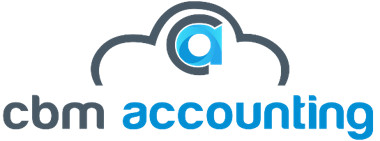[lwptoc]
Capital Allowances are a valuable tool for UK businesses, allowing you to deduct the cost of certain capital expenditures from your taxable profits. This can significantly reduce your tax liability and improve your cash flow. Let’s delve into the key aspects of Capital Allowances.
What Are Capital Allowances?
Capital allowances allow businesses to deduct the cost of qualifying capital assets from their taxable profits, reducing their corporation tax or income tax liability. These allowances apply to expenditure on assets used for business purposes, such as equipment, machinery, and vehicles.
Who Can Claim Capital Allowances?
Businesses, including sole traders, partnerships, and companies, can claim capital allowances if they have invested in qualifying assets.
Types of Capital Allowances
- Annual Investment Allowance (AIA):
- Allows businesses to deduct 100% of qualifying expenditure on plant and machinery up to the AIA limit (currently £1 million per year).
- Writing Down Allowance (WDA):
- Used for costs exceeding the AIA limit or for assets that don’t qualify for AIA.
- Assets are grouped into main pool (18%) and special rate pool (6%) depending on the type of asset.
- First-Year Allowances (FYA):
- Offers 100% tax relief on qualifying assets in the first year.
- Includes investments in energy-efficient and environmentally friendly equipment.
- Super-Deduction (Until March 2023):
- Provided 130% tax relief on qualifying plant and machinery.
- No longer available for new purchases but remains relevant for assets acquired during the applicable period.
- Structures and Buildings Allowance (SBA):
- Allows businesses to claim 3% per year on the cost of constructing or renovating commercial buildings.
What Qualifies for Capital Allowances?
Qualifying assets typically include:
- Plant and machinery (e.g., computers, office furniture, manufacturing equipment)
- Vehicles used for business (excluding cars with high CO2 emissions)
- Integral features in buildings (e.g., heating and electrical systems)
- Renovation and construction costs (via SBA)
How to Claim Capital Allowances
- Claims are made through Company Tax Returns (CT600) for businesses or Self Assessment tax returns for individuals.
- Businesses must keep records of purchases, invoices, and asset usage to support claims.
Why Are Capital Allowances Important?
- Reduce tax liability: Lowers taxable profits and overall tax bills.
- Encourage investment: Provides tax relief to businesses investing in growth.
- Improve cash flow: Frees up capital for reinvestment.
Key Considerations:
- Qualifying Expenditure: Ensure your expenditure qualifies for Capital Allowances.
- Accounting Periods: The timing of your expenditure can impact when you can claim allowances.
- Record Keeping: Maintain accurate records of your asset purchases and disposals.
- Claiming Allowances: You claim Capital Allowances through your Corporation Tax Return or Self-Assessment tax return.
- Cars: Rules for claiming Capital Allowances on cars are complex and depend on the car’s CO2 emissions.
Tips for Maximizing Capital Allowances:
- Plan Investments: Plan your capital expenditures to take advantage of the AIA.
- Utilize FYAs: If applicable, utilize FYAs to accelerate tax relief.
- Maintain Accurate Records: Keep detailed records of your asset purchases and disposals.
- Seek Professional Advice: Consult with an accountant or tax advisor for personalized guidance.
- Stay Updated: Keep up-to-date with changes in Capital Allowances legislation.
Benefits of Capital Allowances:
- Reduced Tax Liability: They lower your taxable profits, reducing your tax bill.
- Improved Cash Flow: They can improve your cash flow by providing tax relief on capital expenditures.
- Encourages Investment: They incentivize businesses to invest in new equipment and technology.
Final Thoughts:
Capital allowances are a valuable tool for businesses looking to reduce tax liabilities and support long-term growth. Understanding the different types and ensuring proper claims can result in significant tax savings. Seeking professional advice can help maximize the benefits and ensure compliance.
To know more about it, visit our official website: https://cbmaccounting.co.uk/ .
Contact us at: +020 3002 0436

